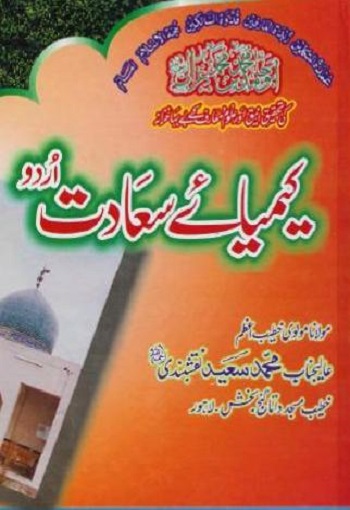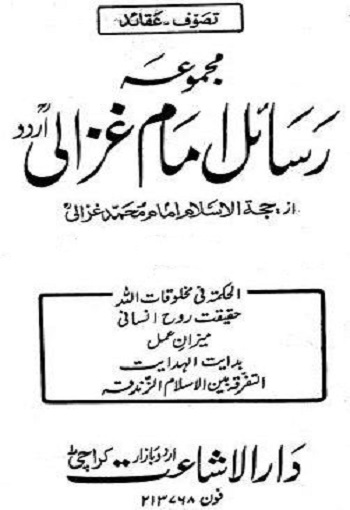

This study is focused on the Qur’anic text.

Aside from being tolerant and respectful of other faiths, advocating freedom of faith, and peaceful coexistence for all humanity, Muslims have to intellectually engage on matters of religious truth whilst defending the validity of their own Islamic tenets. As such Islam has much to add to the debate on Religious Pluralism.
#IMAM GHAZALI BOOKS PDF FREE DOWNLOAD HOW TO#
Yet in the Qur’an we have a great and worthy example of how to live in diversity, of powerful scriptural tenets that lend themselves precisely to engagement with those of other faiths. In a multi-faith world, Islam is widely regarded as dogmatic and exclusivist. Moreover, since this sort of inquiry characterizes each Abrahamic tradition, this study can be expected to enhance interfaith conversation and explore religious ways to enhance tolerance between other believers. From this point of view, their discussion does not address the contrast between philosophy and religion, or that between reason and revelation that is so characteristic of the Middle Ages, but rather explores differences at the heart of philosophical discussion in our day: is there a level of discourse which will facilitate mutual comprehension among persons, allowing them to engage in debate? This interpretation of sacred texts illustrates the ways religious practice can shape believers’ readings of their sacred texts, and how philosophical interpretations can be modified by religious practice. Yet they differ regarding the proper way to interpret the sacred Book. The book traces the interaction between two Muslim thinkers, showing how each is convinced of the existence of a Book in which God is revealed to rational beings, to whom He has given commandments, as well as of the excellence of Islamic society.

This has traditionally been portrayed as a battle between philosophy and theology, but the book shows that Averroes was rather more religious and Al-Ghazali more philosophical than they are usually portrayed. This book examines the contrasting interpretations of Islam and the Qur’an by Averroes and Al-Ghazali, as a way of helping us untangle current impasses affecting each Abrahamic faith. Providing a new point of access to the works of al-Ghazali, this book will be welcomed by scholars and students of Islamic studies, religious studies, hermeneutics, and anyone interested in how Muslims understand the Qur’an.

Divided into two parts: part one examines al-Ghazali’s legal and Sufi theoretical discussions part two asks how these theories relate to his practice, analysing the only three of al-Ghazali’s works which are centrally concerned with interpreting particular Qur’anic passages: Jawahir al-Qur’an (The Jewels of the Qur’an) Al-Qist as al-mustaqim (The Correct Balance) and Mishkat al-anwar (The Niche for Lights). Martin Whittingham explores both al-Ghazali’s hermeneutical methods and his interpretations of particular Quranic texts, and covers al-Ghazali’s mystical, legal and theological concerns. This book is the first of its kind to focus entirely on the Qur’anic interpretation of Abu Hamid al-Ghazali (1058-1111), a towering figure of Sunni Islam.


 0 kommentar(er)
0 kommentar(er)
